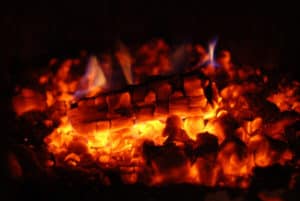Michael is a leader in a high-tech organization. He’s charismatic, affable, and the ideal networker due to his highly-social nature. He gets along with nearly everyone and can lighten the mood of even the toughest meeting with his playfulness and sense of humor.
 Cara is a leader in the same organization. She’s lower-key and less likely to crack a joke. But she has a reputation for being fair and principled. Others know they can count on her for the straight scoop, even when it’s uncomfortable.
Cara is a leader in the same organization. She’s lower-key and less likely to crack a joke. But she has a reputation for being fair and principled. Others know they can count on her for the straight scoop, even when it’s uncomfortable.
Which leader leaves the best impression with others? Which would leave the best impression with you?
According to the research of Goodwin, Piazza, and Rozin from the University of Pennsylvania (and published in the Journal of Personality and Social Psychology), “moral character information is more important than warmth information in impression formation.” The researchers describe ‘warmth’ as sociable, happy, and agreeable and ‘moral’ is fair, responsible, and honest. And they’ve determined that when it comes to how we fundamentally size up others, moral trumps warmth.
This research resonates for me because it wraps adult words around a childhood/young adult experience I could only express in unsophisticated, visual terms. I remember looking at people and clearly recognizing that they fell into two categories: flames and embers. Flames were my heroes. They walked into a room and it lit up… they were high energy, engaging, and immediately drew people to them… they were fun and funny… and I wanted to be just like them. I guess I admired them so because I, on the other hand, was more of an ember. I didn’t make that immediate, visceral impression. No jokes. No dazzle. My attraction was less immediate, slower to build. I felt dull and boring by comparison.
But, as I looked around, I saw other embers and noticed some important things about them. Their draw was less dynamic but more enduring. They might not turn heads immediately, but they turned hearts over time. Their relationships, while slower to build, were deeper and more long-lasting. Trust and confidence grew stronger as weeks and years passed. Whereas flames burned themselves out, embers glowed on and on.
Based upon the work of Goodwin et al, it might be argued that embers are the leaders whose impressions are based upon moral character versus the warmth that characterizes flames.
So, what do embers do to create that impression… and contribute to long-term, sustainable leadership? They demonstrate some powerful characteristics. They are:
- Courageous – Embers do the hard, scary stuff that others might shy away from. They take unpopular action when needed. They have hard conversations and unflinchingly do what’s right.
- Responsible – As boring as it is, embers say what they’ll do and do what they say. They are consistent, dependable, and accountable… always.
- Fair – Embers value equitability and justice, making sure that the needs of others are considered with the same (or more) care as their own. They are unbiased, impartial, and transparent in all dealings.
- Principled – High-minded and incorruptible, embers work to hold themselves to high standards, doing the right thing… whether anyone is watching or will ever know.
- Honest – You can count on embers to be candid, frank, and forthright in all matters. They tell the truth, even (especially) when it’s challenging.
While it’s less flashy and fun, the impression of moral character over warmth may serve leaders and organizations well…. or at least inspire an inferno of conversation.
What about you? Are you attracted to flames or embers? Warmth or moral character?
This post originally appeared at SmartBrief.com.

